Here are some events that happened on September 8th. It could be an event or a person that died or was born on that day
1504 – Michelangelo's David is unveiled in Piazza della Signoria in Florence.
David is a masterpiece of Renaissance sculpture created in marble between 1501 and 1504 by the Italian artist Michelangelo. David is a 5.17-metre (17.0 ft) marble statue of the Biblical hero David, a favoured subject in the art of Florence.
David was originally commissioned as one of a series of statues of prophets to be positioned along the roofline of the east end of Florence Cathedral, but was instead placed in a public square, outside the Palazzo Vecchio, the seat of civic government in Florence, in the Piazza della Signoria where it was unveiled on 8 September 1504. The statue was moved to the Galleria dell'Accademia, Florence, in 1873, and later replaced at the original location by a replica.
Because of the nature of the hero it represented, the statue soon came to symbolize the defence of civil liberties embodied in the Republic of Florence, an independent city-state threatened on all sides by more powerful rival states and by the hegemony of the Medici family. The eyes of David, with a warning glare, were fixated towards Rome

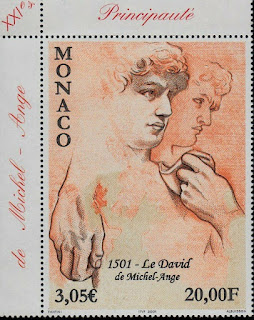
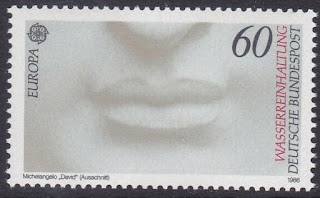

1830 Born: Frédéric Mistral, French lexicographer and poet, 1904 Nobel Prize laureate (d. 1914)
Frederic Mistral (Occitan: Josèp Estève Frederic Mistral, 8 September 1830 – 25 March 1914) was a French writer of Occitan literature and lexicographer of the Provençal form of the language. Mistral received the 1904 Nobel Prize in Literature "in recognition of the fresh originality and true inspiration of his poetic production, which faithfully reflects the natural scenery and native spirit of his people, and, in addition, his significant work as a Provençal philologist". He was a founding member of the Félibrige and a member of l'Académie de Marseille.
His name in his native language was Frederi Mistral (Mistrau) according to the Mistralian orthography or Frederic Mistral (or Mistrau) according to the classical orthography.
Mistral's fame was owing in part to Alphonse de Lamartine who sang his praises in the 40th edition of his periodical Cours familier de littérature, following the publication of Mistral's long poem Mirèio. Alphonse Daudet, with whom he maintained a long friendship, eulogized him in "Poet Mistral", one of the stories in his collection Letters from My Windmill (Lettres de mon moulin).
Stamps from France and Monaco depicting Frédéric Mistral
1841 Born: Antonín Dvořák, Czech composer and academic (d. 1904)
Antonín Leopold Dvořák (8 September 1841 – 1 May 1904) was a Czech composer, one of the first to achieve worldwide recognition. Following the Romantic-era nationalist example of his predecessor Bedřich Smetana, Dvořák frequently employed rhythms and other aspects of the folk music of Moravia and his native Bohemia. Dvořák's own style has been described as "the fullest recreation of a national idiom with that of the symphonic tradition, absorbing folk influences and finding effective ways of using them".
Stamps from Bohemia and Moravia depicting Antonín Dvořák
1949 Died: Richard Strauss, German composer and manager (b. 1864)
Richard Georg Strauss (11 June 1864 – 8 September 1949) was a leading German composer of the late Romantic and early modern eras. He is known for his operas, which include Der Rosenkavalier, Elektra, Die Frau ohne Schatten and Salome; his Lieder, especially his Four Last Songs; his tone poems, including Don Juan, Death and Transfiguration, Till Eulenspiegel's Merry Pranks, Also sprach Zarathustra, Ein Heldenleben, Symphonia Domestica, and An Alpine Symphony; and other instrumental works such as Metamorphosen and his Oboe Concerto. Strauss was also a prominent conductor in Western Europe and the Americas, enjoying quasi-celebrity status as his compositions became standards of orchestral and operatic repertoire.
Strauss, along with Gustav Mahler, represents the late flowering of German Romanticism after Richard Wagner, in which pioneering subtleties of orchestration are combined with an advanced harmonic style.
Stamps from Berlin and Vatican City depicting Richard Strauss





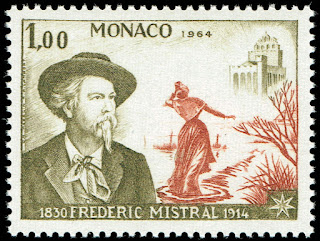

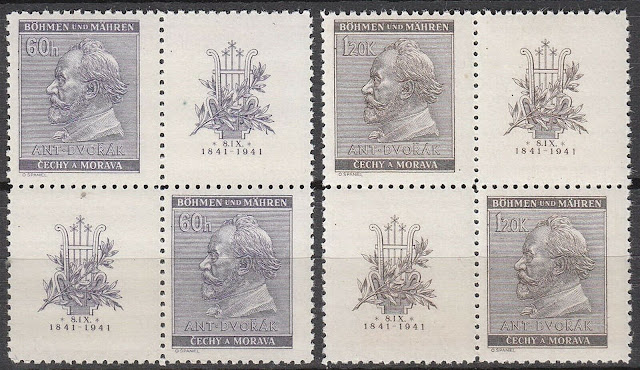
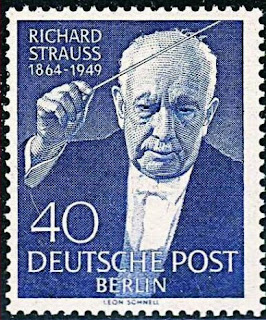

No comments:
Post a Comment